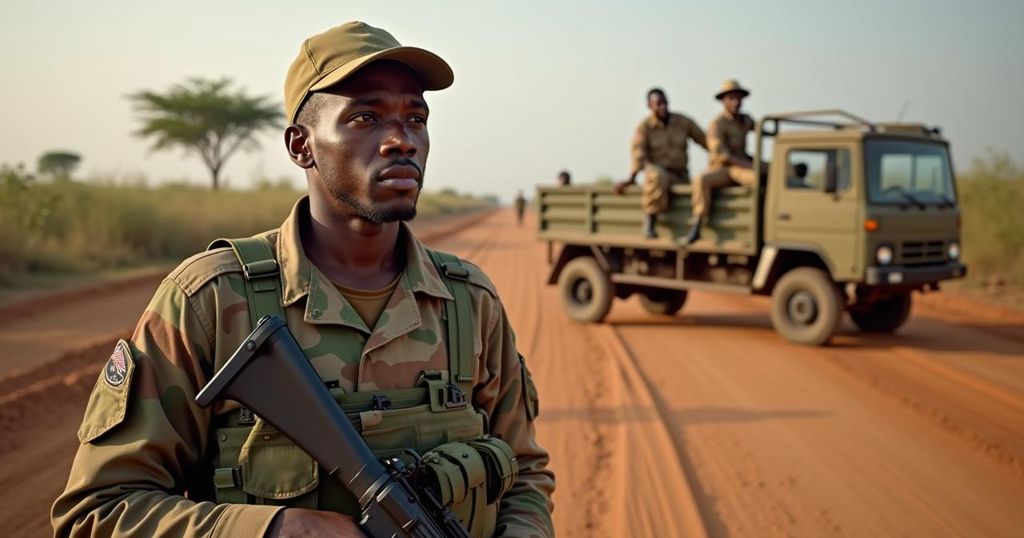Somalia, Eritrea, and Egypt Strengthen Security Ties Amid Regional Turbulence
In a recent summit in Asmara, the presidents of Somalia, Eritrea, and Egypt pledged to bolster security cooperation in response to threats from the al-Shabab armed group. They emphasized the importance of respecting national sovereignty and addressing external interferences while coordinating efforts to combat terrorism. The new alliance may challenge Ethiopia’s interests amidst ongoing tensions regarding military and political engagements in the region.
During a recent summit in Asmara, Eritrea, the presidents of Somalia, Eritrea, and Egypt convened to enhance cooperation for regional security in the Horn of Africa, where Somalia is combating the al-Shabab militant group. The meeting, instigated by Eritrean President Isaias Afwerki, involved Egyptian President Abdel Fattah al-Sisi and Somalia’s Hassan Sheikh Mohamud. The leaders reached consensus on strengthening their collaborative efforts toward regional stability and affirmed their collective commitment to respecting the sovereignty, independence, and territorial integrity of the nations involved. Furthermore, they recognized the necessity of addressing external interferences in regional affairs, advocating coordinated actions to foster stability, and promoting sustainable development initiatives within the region. In light of the ongoing security challenges in Somalia, particularly against al-Shabab, the leaders pledged to enhance cooperation in tackling terrorism, safeguarding territorial integrity, and securing both land and maritime borders. This new security pact may raise concerns in Ethiopia, which maintains a significant troop presence in Somalia to combat al-Qaeda affiliated groups. Relations between Somalia and Ethiopia have soured, especially following Somalia’s decision to pursue a military agreement with Egypt amidst tensions over Ethiopia’s development of a dam on the Nile River. Eritrea’s historical relations with Ethiopia remain complex, particularly since Eritrean troops have supported Ethiopia during its internal conflicts. Analysts have noted that Eritrea’s exclusion from peace negotiations related to the Tigray conflict may have further complicated these dynamics. However, the Ethiopian Foreign Ministry has characterized relationships with Asmara as “peaceful,” reportedly enjoying “good neighbourliness and good friendship.”
The Horn of Africa has become a focal point for security cooperation among neighboring countries, particularly amid threats from terrorist organizations such as al-Shabab. Somalia, in particular, has been under siege from this militant group, necessitating partnerships with allies like Egypt and Eritrea to enhance security measures. The ongoing geopolitical tensions associated with Ethiopia’s actions in Somalia and the wider implications of the Nile River project have complicated regional dynamics, involving numerous stakeholders in intricate relationships that oscillate between alliance and contention. This trilateral summit represents a strategic attempt by Somalia, Eritrea, and Egypt to stabilize their shared interests, balancing the regional power play with Ethiopia as they address both security concerns and national sovereignty.
The agreement reached by the leaders of Somalia, Eritrea, and Egypt is a pivotal step towards bolstering regional security amidst the threats posed by terrorism. By emphasizing sovereignty and territorial integrity, the leaders aim to create a stable environment conducive to development and cooperation. However, the implications of this pact on the already complex relations with Ethiopia, especially regarding mutual security and territorial issues, warrant close monitoring, as it could reshape the alliances and tensions in the Horn of Africa. This situation reflects the nuanced interplay of regional politics, where historical grievances and contemporary challenges must be navigated delicately to achieve lasting peace.
Original Source: www.aljazeera.com




Post Comment